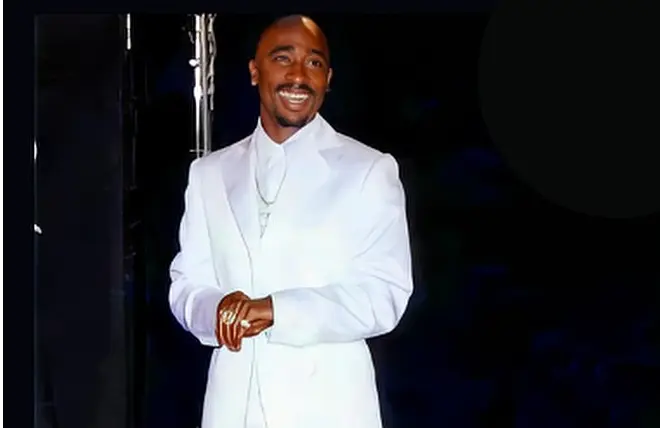Who is Keefe D. Davis? Tupac Shakur case suspect seeks dismissal of charges in Nevada court
-
 Tupac case suspect Keefe D. Davis seeks dismissal, arguing prosecutors violated due process by using old interviews and delaying charges.
Tupac case suspect Keefe D. Davis seeks dismissal, arguing prosecutors violated due process by using old interviews and delaying charges.Duane “Keefe D.” Davis, long a peripheral figure in the unsolved murder of rap legend Tupac Shakur, has surged to national attention. Now, in a bold legal move, the only man ever charged in the 1996 Las Vegas killing has asked the Nevada Supreme Court to toss out his murder case. The suspect himself, Keefe D. Davis, is making the claim.
Blending legal drama with the enduring mystery of Tupac’s death, the filing centers on alleged broken promises and constitutional overreach. Would this ex-gang leader get off the hook, or is this just a lifeline thrown as a high-profile trial looms? Coverage so far frames it as a bold gambit in a case mired by time, delays, and lost evidence; Davis insists his rights have been trampled, while prosecutors say he’s finally facing accountability.
Keefe D. Davis: Who he is and his push for dismissal of charges in the Nevada court
Duane “Keefe D.” Davis, aged 62, is the only individual ever formally charged in connection with Tupac Shakur’s 1996 Las Vegas murder. Davis has openly admitted, both in interviews and his 2019 memoir, Compton Street Legend, that he provided the gun used in the fatal drive-by shooting. Arrested in September 2023, he faces a first-degree murder charge after decades of remaining free while other alleged conspirators—including his nephew Orlando “Baby Lane” Anderson—died before ever being prosecuted.
In January 2025, Davis’s lawyer, Carl Arnold, filed a motion to dismiss all charges. The argument hinges on three pillars: a 27-year delay in prosecution, absence of corroborating evidence beyond Davis’s statements, and prior immunity deals Davis claims were promised by federal and local authorities during interviews in 1998, 1999, 2008, and 2009. Arnold asserts that Davis cooperated for over a decade under assurances his statements wouldn’t be used in court, yet those same statements are now the state’s case-in-chief.
A Clark County District Court judge overruled the motion in July 2025, finding no evidence of formal immunity agreements and concluding the prosecution’s delay wasn’t intentional. In response, Davis’s team filed a petition (a writ of mandamus) with the Nevada Supreme Court, urging it to overturn the denial and either dismiss the case or require prosecutors to prove they hold admissible evidence beyond Davis’s recountings. As Arnold put it:
“Mr. Davis cooperated with law enforcement for more than a decade based on assurances that his statements wouldn’t be used against him—yet those same statements are now central to the case against him. That’s a clear due process violation.”
If granted, the petition could send the case back to the lower court with instructions to dismiss or compel the state to disclose any additional evidence it may have. Davis remains jailed at the Clark County Detention Center, awaiting a trial currently scheduled for early February 2026, although earlier calendars had listed March 17, 2026, as the start date.
The Tupac Shakur case and how it reached this point
On September 7, 1996, Tupac Shakur was shot at a red light near the Las Vegas Strip during a drive-by ambush. He died six days later at 25, while his friend Marion “Suge” Knight survived with injuries.
Davis’s nephew, Orlando Anderson, was long suspected as the triggerman, but he denied involvement and died in 1998 before any charges were filed. Over the decades, no arrests were made until Davis’s arrest in late 2023 marked the first criminal charge stemming from the case.
Davis, a former Compton Crips gang leader, placed himself at the center when he confessed to acquiring the .40‑caliber Glock used in the shooting. Prosecutors now cite those admissions and other evidence, including witness statements from a federal task force led by Detective Greg Kading, as part of a “voluminous” case against him.
Meanwhile, the reality of lost witnesses (many have died), fading memories, lack of physical evidence (no gun, no car recovered), and the long legal delay underpin the defense’s appeal that prosecuting decades later is fundamentally unfair and unconstitutional.
TOPICS: Keefe D. Davis, Tupac Shakur